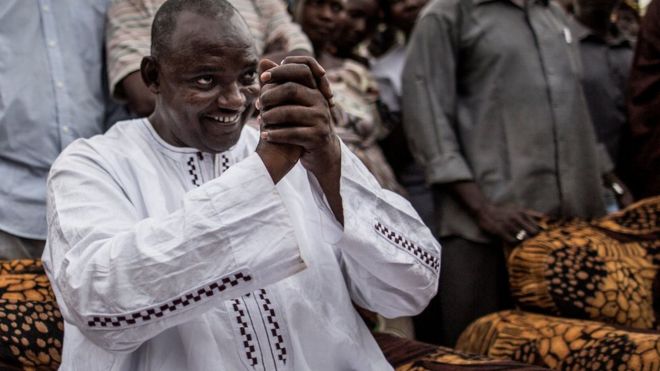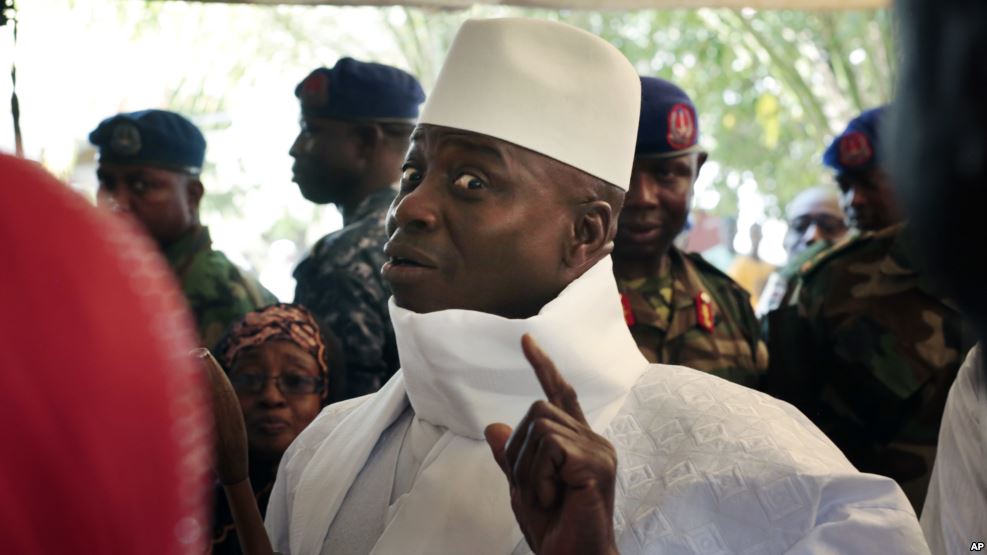Gambia’s president Yahya Jammeh ‘to concede defeat’
- Posted on
- Comment
 The Gambia’s autocratic president, Yahya Jammeh, who once claimed a “billion-year” mandate to rule, has agreed to concede defeat after a shock election loss to a real-estate developer.
The Gambia’s autocratic president, Yahya Jammeh, who once claimed a “billion-year” mandate to rule, has agreed to concede defeat after a shock election loss to a real-estate developer.
Jammeh has ruled the tiny west African nation for more than two decades. If he goes ahead with a peaceful handover of power, challenger Adama Barrow will become its third head of state since independence in 1962.
The head of the Gambia’s electoral commission, Alieu Momarr Njai, said Jammeh would concede on Friday. A video of his speech has already been recorded and is being edited, sources told the Guardian.
It was “very unique” that Jammeh would accept defeat after controlling the Gambia for so long, Njai said.
Jammeh had cut off the internet and international phone calls before the polls. He also banned protests and refused to comment on whether he would concede if he lost, raising fears of fraud on voting day or violence in its aftermath.
This year’s election was the first since 1994, when Jammeh seized control of the country in a coup, that he faced a serious challenge to his rule.
He consolidated power in a series of presidential elections, and skilfully exploited tribal and other divisions among multiple opposition parties in past elections.
This year however a coalition of parties agreed to unite behind a single candidate, and chose Barrow, a previously unknown businessman. He had fired up voters in the past two weeks, the only period allowed for campaigning before the poll.
About 900,000 people were eligible to vote in the election, casting their ballots by putting marbles into a drum representing their chosen candidate. Gambian authorities say the system avoids confusion for many illiterate voters, and the risk of spoiled ballots.









 (Selorm) |
(Selorm) |  (Nana Kwesi)
(Nana Kwesi)